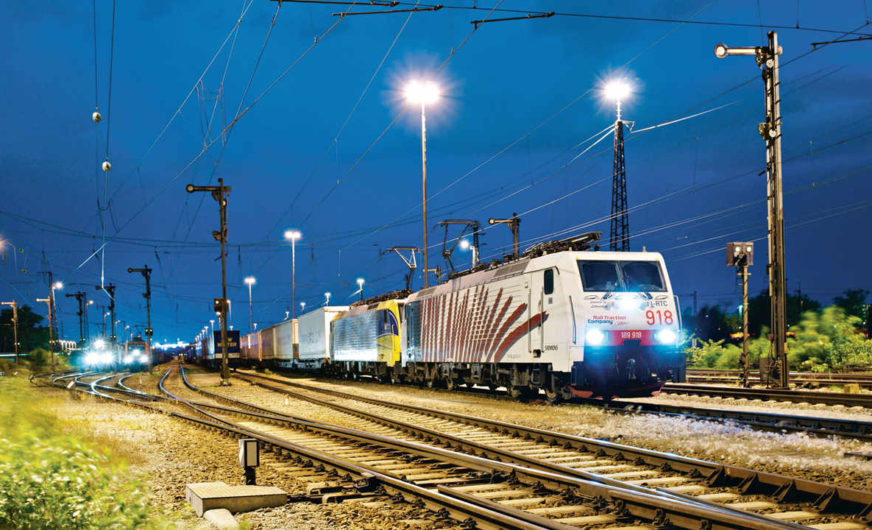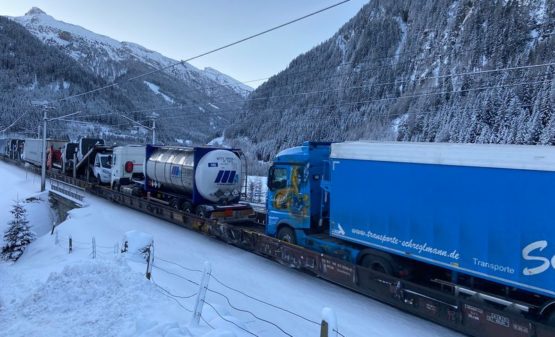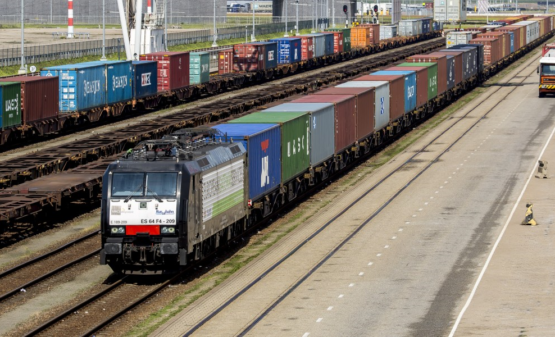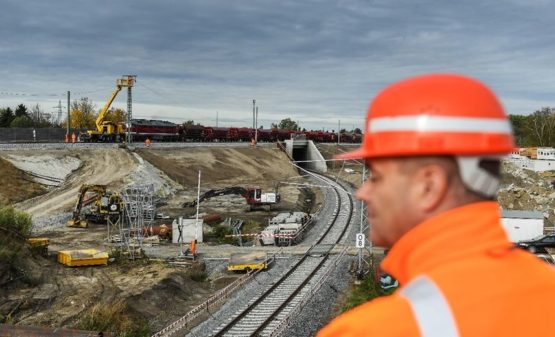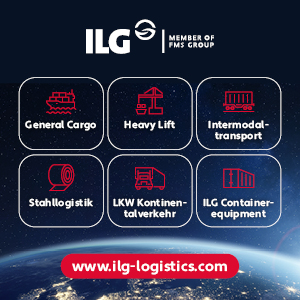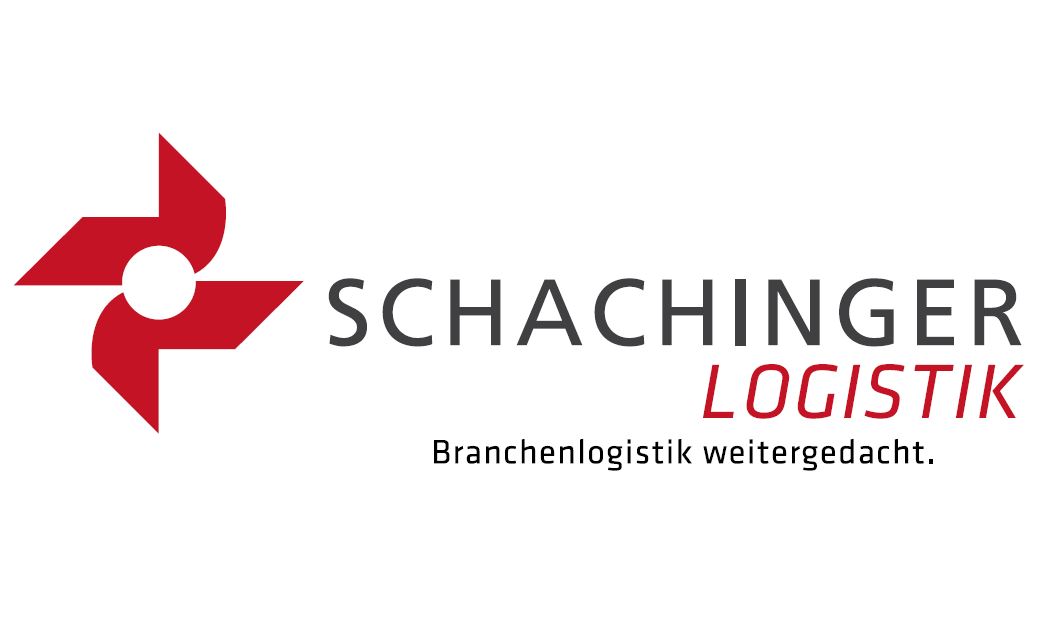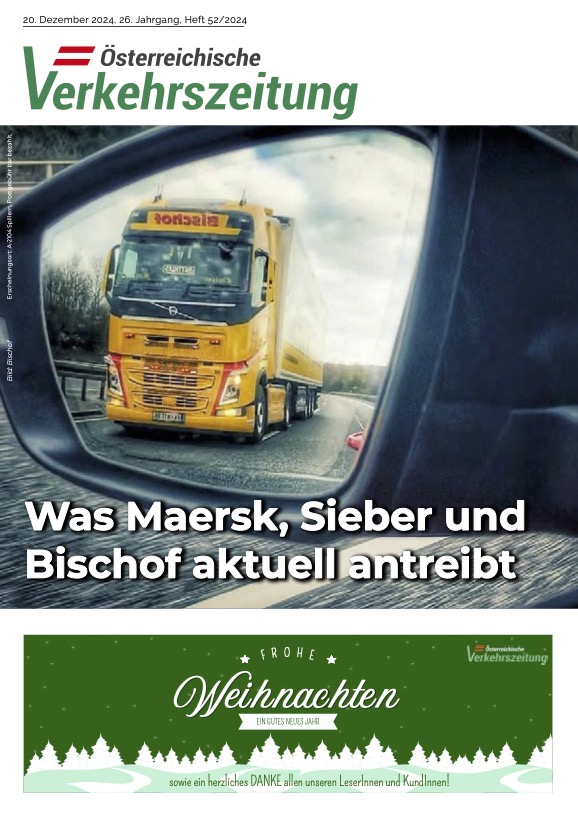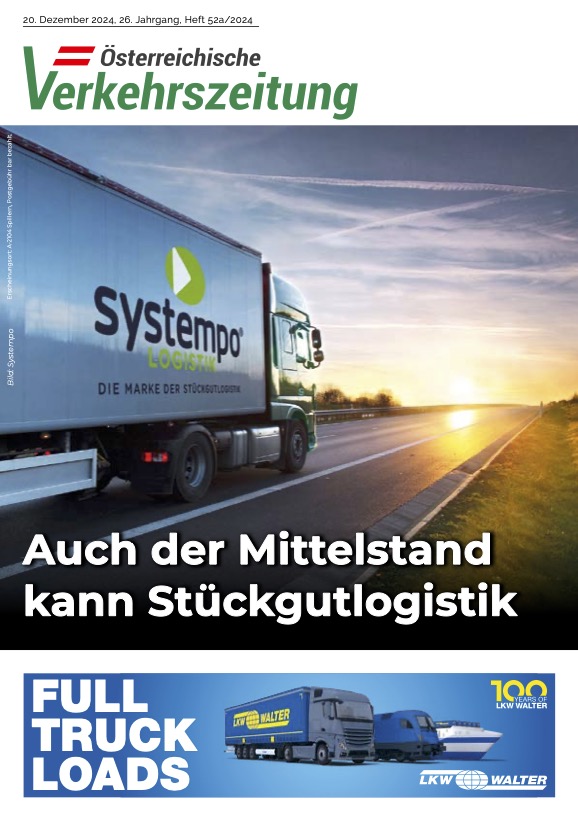Under the general conditions prevailing at present, rail will be unable to increase its share of transport from 25 to the 30 per cent by 2030 that the German government is hoping for. That was the firm view of Robert Breuhahn and Armin Riedl at today’s meeting of the partners of Kombiverkehr KG in Frankfurt, which was otherwise dominated by the company’s birthday celebrations: Kombiverkehr is celebrating 50 years of existence this year.
In principle, the two managing directors of the European market leader in intermodal transport consider an annual increase in transport volumes in Combined Transport (CT) of more than ten per cent to be possible given a “product range in line with market requirements”. It was unrealistic to expect such growth rates in practice, however.
With some 170 shuttle trains every day, in 2018 Kombiverkehr again operated the largest and densest intermodal network in Europe for switching transport from road to rail. By shifting truck consignments to rail, the company saved more than one million tons of carbon dioxide (CO2) emissions. However, the number of truck consignments actually transported fell 2.1 per cent on the previous year to 937,837 (just under 1.9 million TEU).
“As the European market leader, we cannot escape the general trend,” Robert Breuhahn said. “That is why the development of Kombiverkehr is a gauge of the development of the market as a whole.” According to him, the different growth rates of individual transport axes reflect precisely where there were major problems on the railways, and where there were fewer.
He puts the decline of 3.6 per cent to 200,000 consignments in the German national network primarily down to the “again unsatisfactory service quality of DB Cargo.” Its punctuality rate had reached less than 70 per cent. In this situation, it was rather cynical for subsidiaries of Deutsche Bahn to profit from the poor performance of the parent company. “Yet that is exactly what happens when terminal operators rigorously demand storage fees for swap bodies or containers that are only in the terminal in the first place because the trains are not punctual.”
Robert Breuhahn stated that quality on the railways had now deteriorated for the last six consecutive years. Alongside the many engineering works, he laid the blame at the door of rail operators for their resource problems. “There is a shortage of locomotives and train drivers, and of transshipment capacity at the terminals.”
The overall picture for international transport was similar: the 738,000 consignments (1.5 million TEU) represented a 1.7 per cent drop in consignments transported compared with the previous year. That the decline was less than that recorded for domestic transport can be attributed primarily to two transport axes: with the northern European and Baltic states on the one hand, and with Benelux on the other (each up 12 per cent).
Consignment volumes between Germany and Italy, Kombiverkehr’s most important transport destination, fell by 3.4 per cent in 2018. At 368,000 consignments, more than one in four transport units still crosses the Alps, whether via Austria or Switzerland. “In Austrian transits especially, sectoral driving bans, convoy controls and increased Brenner tolls ought to have ensured a real boom via the Brenner Pass,” Breuhahn reckoned. “That is what we expected.”
The spanner in the works came from “serious quality issues that were not just caused by the rail operators.” This was exacerbated by extensive line closures due to engineering works and storms. In August alone, the main route via the Brenner Pass was again closed for two full weeks.
So far 2019 is proving to be a virtually seamless continuation of the previous year’s trends. According to Breuhahn, “Even in the first five months of the year, our transport figures have again been impacted by strikes, train accidents, a disproportionate increase in the amount of engineering works across the whole European rail network and resource problems for the rail operators.” The result was a decline in consignments of about one per cent. Over the same period Kombiverkehr had also felt the effect of economic problems in the automotive and chemicals industries, resulting in a fall in utilisation of both national and international train capacities.


